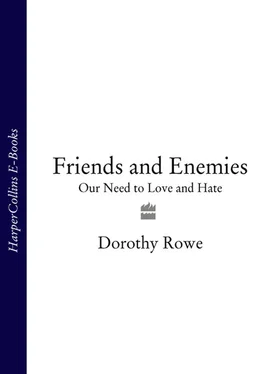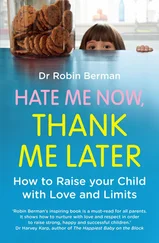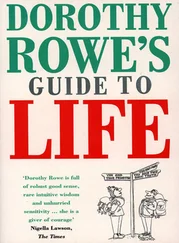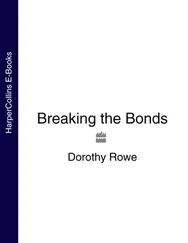I have been friends with Judy since 1954, and I regard this as one of my achievements. I love Judy dearly, but in my youth I was always afraid that I would not live up to the high standards Judy set for her friends. Now I am older and wiser I was able to ask her about how she saw friends and enemies. She told me she defined friends as ‘People who like me and are faithful to me. They have to be totally faithful.’
I asked her what was involved in being faithful.
‘They don’t cause trouble amongst other friends. They don’t bitch me up too much. They’re allowed to say a few things about me because I don’t think anybody could go through life not talking about their friends, but they should say positive things about me as well, so that if things come back to me I can say, “That’s fair. I can understand why they said that.”’
Judy’s demand that her friends be totally faithful to her is matched by the love and care she lavishes upon her friends. I have noticed that those people who feel that they have much to offer as a friend and who, like Judy, lavish much time and effort upon their friends are not always greatly surprised when their friends respond in kind, whereas those people whose top priorities include more than friendships can be surprised and entranced by what a friend might do for them.
I first met Irene when we were both in our twenties. Each of us had married the same kind of man – selfish, self-centred, someone who demanded that his wife give him her full attention and not fritter away any of her time with friends. In the 1950s this was a typical male attitude. However, Irene understood the importance of friendship better than I did, and she looked after her friends better than I did then. Now, forty years on, Irene has many friends acquired over many years. When I asked her whether she had a talent for friendship she said, ‘I do spend a lot of time socializing, but I’m also a disciplined sort of person time-wise, and so I’ve got my own programme that I follow, and if somebody says, “What about doing such and such?” I’ll say, “I can’t manage that until later in the day” – because I’m going swimming, or I’ve got calligraphy, or yoga.’
A few months after this conversation Irene had an accident and injured her hand most severely. She emerged from the casualty ward with her whole arm in plaster and strapped across her chest. This quite ruined her plans for the coming weekend, when her friend Amy was due to arrive for a short holiday. Now Irene knew that it would be a most uncomfortable time for Amy, so she rang her and explained the circumstances. She suggested that Amy should postpone her holiday until she, Irene, was capable of carrying out a hostess’s duties. She said, ‘Amy, if you come now you’ll just be my handmaiden for the whole of the time.’
Amy laughed and said, ‘It is better to be a handmaiden in the temple of the Lord than an honoured guest in the tents of the wicked.’ Amy arrived soon after and proved to be a most industrious handmaiden, though her attempt to remove some immovable spilt glue from the kitchen floor by scrubbing it with a nail brush was, Irene felt, one task too far. Amy is, Irene told me, ‘a dear lady and a very dear friend’, but words on paper cannot convey Irene’s astonishment and sense of blessedness.
Irene, like me, did not have a childhood where love and a sense of blessedness came as a birthright. I can see what effect such a childhood had on me. I know that there are people who demand much from their friends. I’ve often had to listen to a torrent of disappointment, anger and sadness from such a person who felt betrayed or let down by a friend. Intellectually I can understand the person’s point of view, but, in my heart, I am surprised that anyone can demand so much of a friend, and I get anxious lest to reproach a friend might drive that friend away. I do not expect anything of friends except that they will be nice to me when I am with them, and that behind my back they will speak about me with kindness. If they do not they are not friends. My expecting little of my friends arises not from some great wisdom but from growing up in a family where I found that to ask for anything was to risk refusal and ridicule. When I was a child many shops displayed a sign which read, ‘DO NOT ASK FOR CREDIT BECAUSE A REFUSAL MIGHT OFFEND’. That sign always seemed to epitomize all my relationships. ‘Don’t ask for anything because a refusal always hurts.’
This attitude has meant that I have probably missed out on a great deal, but it also means that anything friends do for me, the smallest gift, the simplest thoughtfulness, comes as a magnificent bonus.
Anthony is one of the warmest, friendliest, kindest people you could meet. When I was in Omagh, Northern Ireland, he took me around, and wherever we went there was someone who greeted him as a friend. Yet, when I asked him how he defined a friend he said, ‘I don’t think I have any friends. I think in your lifetime you’re going to be lucky to meet anyone – two, three at the most, people – whom you could define as friends, in the way that I would perceive friendship. I think friendship develops over years of trust and acceptance, I suppose. For me, I have no recollection of having friends who were unconditional. The friends that I have are friends because it suits them to be my friends, or vice versa. While I think a lot of them, they’re not friends in the sense I think you’re asking me about friendship – except for Anne, my wife, and that friendship took twenty-five years to come about. I’ve told Anne this: when we got married, I didn’t know what love was. I walked up the aisle in hope. She finds it a great source of pain when I say that to her, because she thinks of her wedding day as a day of such love and hope. She can’t believe that I didn’t. I’m totally honest with her. I say, “The experience I had with you is something very special, but I couldn’t really say I loved you until we had ten years of marriage through us, through our lives.” I realized then that I loved her.’
Anthony was the sixth of eleven children born to a bitterly unhappy couple. He said, ‘Friends weren’t encouraged in our family because there was enough of us in the family not to have friends around. God, you wouldn’t have brought your friend round for tea as well! There was already eleven children to feed. So I just keep comfortable distances with people, because of the mask I wear. I would be a person who has to wear a lot of different faces for different people, and I find that difficult in the long term. I feel almost insincere, because the face I would wear for you would be different from the face from the one at work, or home, or whatever. These faces sustain me and carry me through life. For a long time I felt insincere with that, but I’ve learned to make sense of it. I miss that relationship that could be there somewhere. I know I’m very well known and popular, but those people would be at a comfortable distance. Anne is the only person who really knows me. I think, too, I’ve found friendships in books. Certain books, they’re close friends. Books don’t betray you.’
Anthony, I guess, is like me in that I can usually detect in others the wariness that evolves as a defence when a child discovers that he cannot trust the people who should be caring for him. Adult life does little to diminish such wariness because once we discover the treachery of others unconditional trust can never be reborn.
I found this wariness in one of the most delightful people, someone I met in a jazz bar in Beirut, where he worked.
James was magnificently beautiful. Every evening when I was in Beirut I sat at the bar, where he gave out smiles, drinks, food, and listened to the regulars who, like me, were gathered around him. One evening when the bar was quiet James told me that he came from Freetown, Liberia, but as an adult he had lived in various places in Europe where, I gathered though he did not say, life had been hard. When he was young his parents had been Muslim but his aunt, who brought him up, was a Baptist. He’d helped her to look after the church, and he had learned to believe in God – one God for all of us, even though different people had different names for God. He knew that God saw us as being all the same, all sinners. The idea that the colour of a person’s skin or the beliefs that a person held made one person different from another was a human idea, not God’s, and very wrong.
Читать дальше












